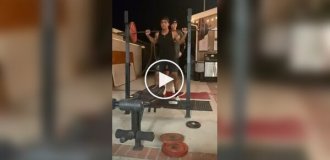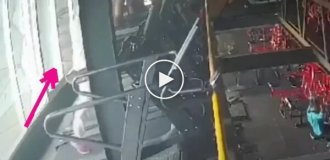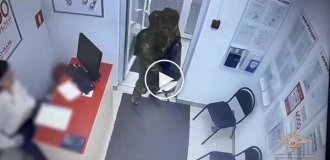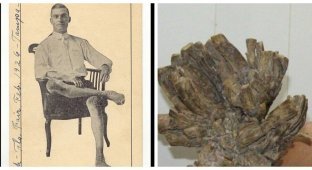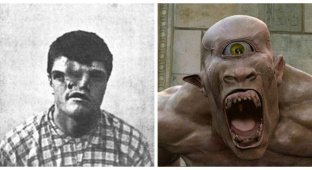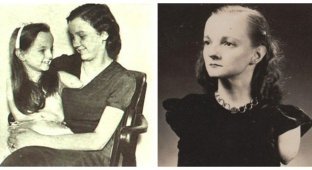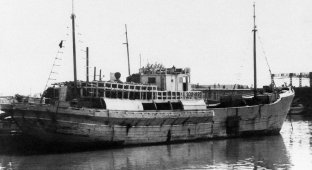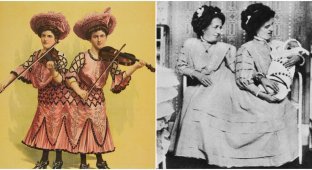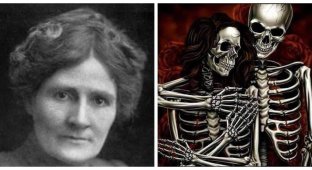Seal Silo (4 photos)
He was called a fur seal or a baby seal because of his actual resemblance to these animals. Although in terms of the strength and fortitude of the guy’s spirit, he can be compared with representatives of the US Army SEAL special forces (Navy Seals), which appeared decades after his birth. 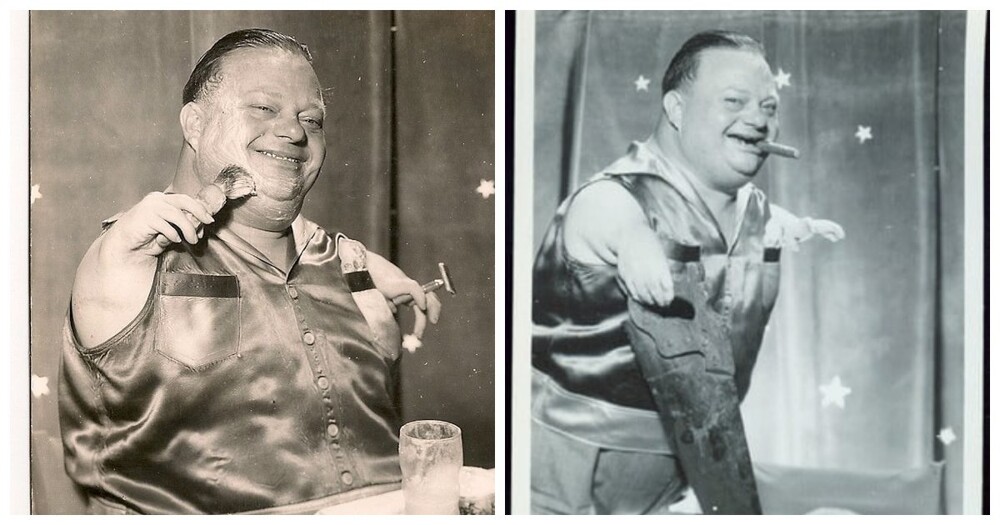
For not every person will be able to overcome the most difficult test and overcome their own helplessness. 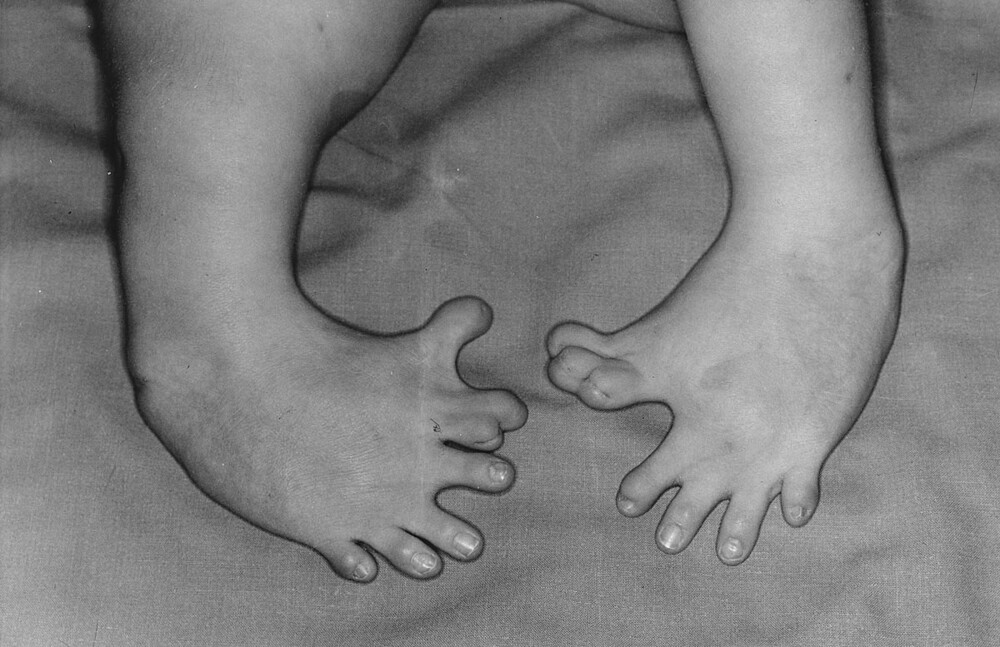
Manifestation of phocomelia
Stanislaus Berent was born in Pittsburgh, Pennsylvania on November 24, 1901. Stanley's underdeveloped hands are a condition known as phocomelia syndrome. It is characterized by the absence of limbs or their parts. The defect is genetic and, in Stanley's case, not caused by exposure to chemicals. Phocomelia is a common defect associated with exposure to the drug thalidomide. More than 10,000 children were born with severe malformations due to the use of the drug in the 50s and 60s. 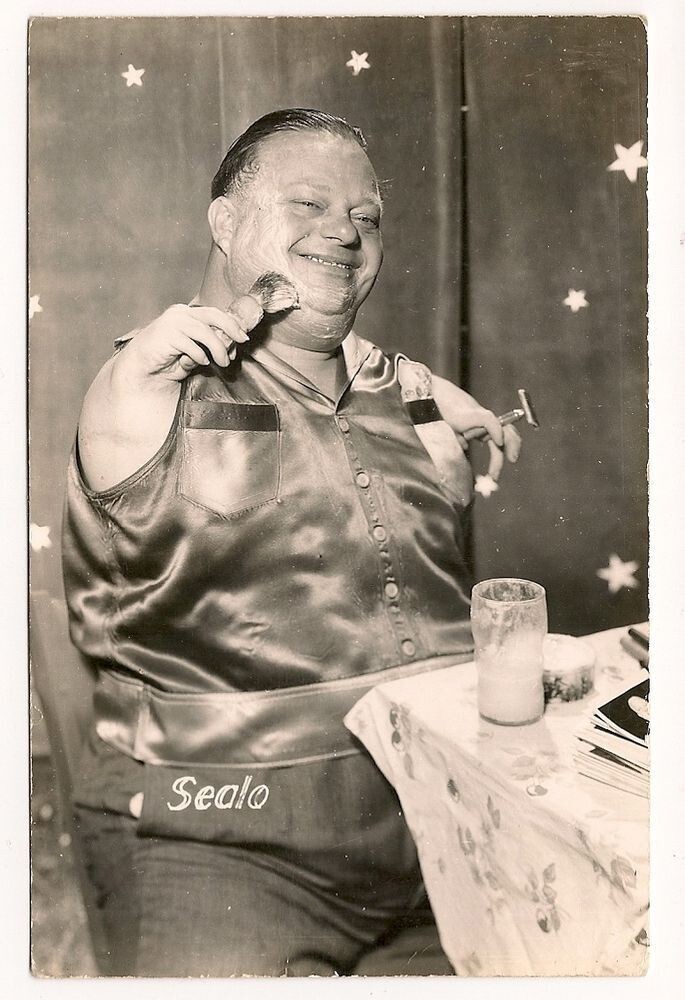
Stanley started by selling newspapers. He went on to perform in every major show in the United States. Calling himself Silo (seal), since phocomelia literally translates to “seal hands,” he performed normal actions without full limbs, surprising viewers with his dexterity. Shaving, lighting a cigar, sawing a board - all this is easy and simple when you have ordinary hands. But Silo, with his hands that practically grew from his shoulders, was not easy. But no one suspected the difficulties, because every performance was easy, relaxed, with a sparkle.
The primitive stick-and-sock device allowed Silo to perform almost any task. He was distinguished from other colleagues in the workshop and by misfortune by his amazing character - easy-going, open, friendly.
Everyone loved him - colleagues, spectators, and even animals. While touring with Ward Hall, Silo befriended a young chimpanzee. Perhaps due to orthopedic problems or simply for comfort reasons, Silo often stayed in hotels rather than camping out at the fairgrounds like many other performers. 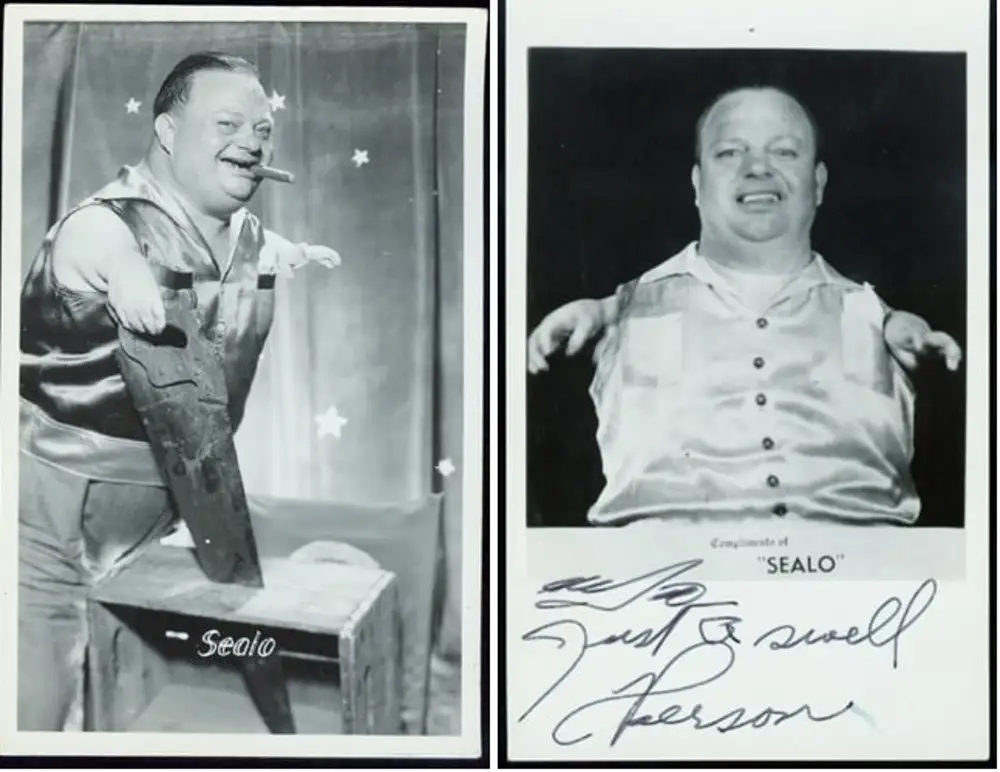
This practice, which might seem like a sign of arrogance, was simply accepted by his colleagues and was never questioned. Again, his personality most likely helped him avoid prejudice from other artists.
In 1972, Ward Hall's exhibition was attacked by a political group that believed artists were being exploited. The argument cited a vague 1921 Florida law prohibiting the showing of disabled people. Silo, Ward Hall and a group of artists sued the state of Florida, and the law was eventually overturned.
In 1976, Silo went to Gibsonton and then returned to Pittsburgh when his health began to decline. He died in 1980, having dedicated more than 30 years to performing.

